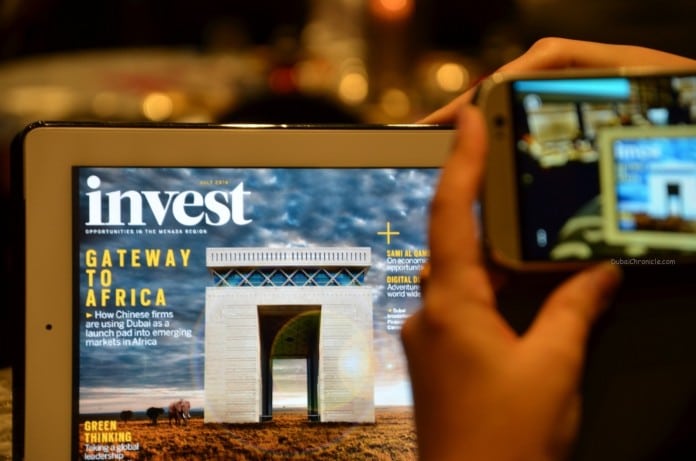
A fundamental shift in global finance has thrown the GCC countries into full glare of the world spotlight amid surge of GCC sovereign funds.
The rise in importance of Gulf region Sovereign Wealth Funds has been ongoing for some months, but yesterday at the International Financial Forum in Paris, staged by Paris EUROPLACE, the organisation promoting Paris as a Financial Market, the evidence of the GCC’s influence was stronger than ever.
Attendees included more than 1,200 representatives of investors, banks and financial institutions, French and international issuers, as well as a large delegation of the GCC member countries and high representatives of the European Commission and Parliament.
The topic of the forum was “the contribution of the Paris Financial Centre to the global economy”, which included 3 GCC-focused panel discussions showcasing the growing importance of the GCC region in global finance and the positioning of Paris as a welcoming and responsive financial centre for global funds. The panel discussions stole the show: they were largely oversubscribed and there were rows of people standing at the back of the room.
The large GCC delegation – led by Dr Nasser Saidi, Chief Economist of Dubai International Finance Centre (DIFC), Jean Paul Villain, Head of Strategy Unit of Abu Dhabi Investment Authority (ADIA), Arif Sherani, Director of Investment Strategy of Qatar Investment Authority (QIA) and Tom Healy, CEO of ADX (Abu Dhabi Exchange) – was on a mission to explain the opportunities offered by the Gulf areas and succeeded in seducing European investors, bankers and media.
The 3 sessions were: “The role of long term investors in the global economy”, “GCC cooperation opportunities”, and “Islamic finance developments”.
Each was vastly oversubscribed, an interesting fact in a country such as France which has had a recent history of economic patriotism.
The role of long-term investors in the global economy (plenary session) underlined the shift of capital to the southern hemisphere, where the capacity on saving averages 50% to compare with 15% in the North, but also the emergence of SWFs as long-term investors together with pensions funds or central banks. The growing financial capacity of SWFs, their long term investment policy and their will to collaborate on policy principles were all highlighted.
De Romanet, CEO of the Caisse des Depots (the French State Fund), underlined the role of the SWF in the global market, and their growing capitalization “from 3 000 billion today to 15 000 billion in the near future”. For him, “SWFs are no more or less than institutional investors and I invite them to join the Caisse des Dépôts, in the Global Institutional Investors Club that I am setting up.” Villain from ADIA and Sherani from QIA insisted on the need for continuous dialogue.
Dr Nasser Saidi from DIFC underlined that “in the 70s and 80s, the petrodollars were coming in and out without benefiting the economy, there was no stock exchange, no financial market to leverage the benefits of that flow. Now that we can control that wealth and invest it, foreigners are welcome to come, operate, and list their companies on one of the region’s stock exchanges.
He added that “The region is growing fast, 11% a year. At this rate the GCC will be the 5th biggest economy in 2020 and its single currency will emerge as a global currency alongside the Euro and the Dollar.” Dr Saidi also called for stronger ties between Europe and the GCC countries, a sentiment backed by the Abu Dhabi Exchange whose representatives signed a strategic partnership agreement with NYSE Euronext.
Tom Healy the CEO of ADX, who said: “The advantages of cooperation are far bigger than merely technical; the expertise and people are more valuable.” He invited the best EU organisations and companies “to contribute to and benefit from the current growth”.
NYSE Euronext a member of Paris EUROPLACE has signed a number of agreements with Financial markets in the GCC region, the most recent being the acquisition of 25% of the Doha Securities Market for USD 250 M, the biggest investment made by NYSE Euronext in a foreign Stock Exchange.
The session on Islamic Finance Developments boasted an impressive panel of regional and French specialists and explained the mechanism of Sharia-compliant finance. It underlined the growing importance of Islamic finance, which is predicted to grow from its current US$800 million to US$1.4 trillion in 2010. It currently represents 20 to 30% of all GCC banking activities in the GCC region.
Christine Lagarde, France’s Minister of Economy, Industry and Employment, highlighted the initiatives, inspired by Paris EUROPLACE committees, more particularly those concerning the development of Islamic finance services on the Paris financial marketplace.
The French law already offers the best flexibility and adaptability to welcome Islamic finance operations. Nevertheless, new measures are currently under way with the set up of a new framework for Sharia’s compatible asset management instruments by the French financial authority (AMF). Some measures including tax incentives are on track, aimed at facilitating Islamic banking and takaful products as well as Sukuk issuance which will make Paris an attractive center for Islamic Finance.
New initiatives have been decided by the AMF in order to facilitate the issuing of Sukuks on the Paris Stock Exchange and tax incentives are being studied to ease Islamic banking and insurance operations (takaful).
Paris EUROPLACE is the organisation which promotes Paris as a financial market. It represents the major players in the financial market, namely corporate issuers, investors, brokerage firms, banking institutions, market authorities, law, accounting and consulting firms, and professional associations. Its main strength is bringing together the multiplicity of players in the financial industry.
































